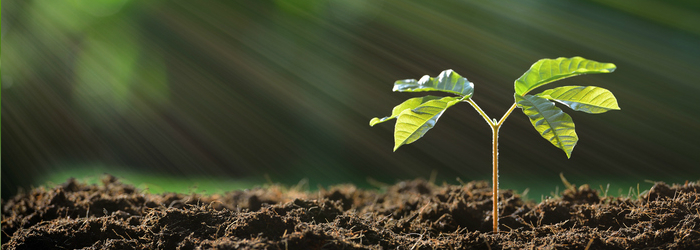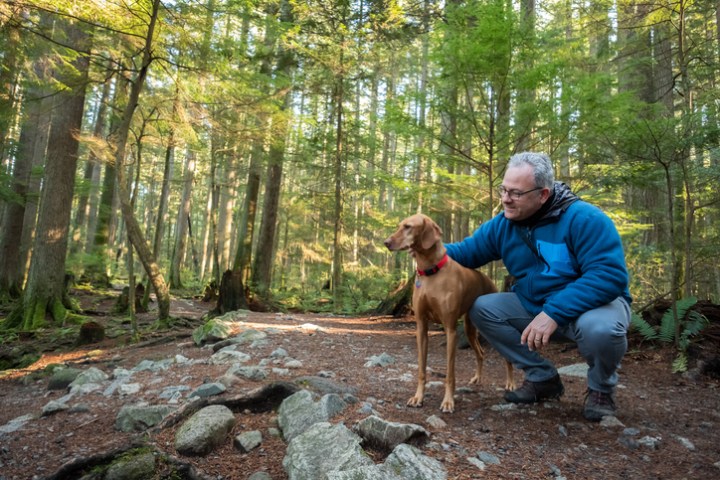How to Change Your Life by Changing Your Environment

Most of us at some point have wished for stronger willpower – whether to lose weight, improve our relationships or achieve more at work. But willpower is not the answer for meaningful change. In his new book, Willpower Doesn’t Work, psychologist Benjamin Hardy explains how small changes in our surroundings lead to big changes in our lives, and he shows how you can consciously evolve into the person you want to become by taking control of your environment.
We adapt to our environments. Thus, a conscious personal evolution involves purposefully controlling and creating environments that shape us into the person we want to become. Everything in life is a natural and organic process. We adapt and evolve based on the environments we select. You are who you are because of your environment. Want to change? Then change your environment. Stop the willpower madness already.
These ideas run counter to a lot of self-help advice, which tends to focus on what you can do, by yourself and for yourself. The pervasive self-help advice is to focus on yourself. This makes sense, because we live in a highly individualistic culture. We’ve been conditioned to ignore context and obsess about ourselves.
Environmental design is different. It’s about creating conditions that make your success inevitable. For example, if you want to be focused at work, you need to remove all distractions from your physical and digital workspace. If you want to eat healthy, remove all of the unhealthy foods from your house. If you want to get creative insights, get out of town and relax for a day or two. If you want to be more motivated, take on greater responsibility and increase the stakes for both success and failure.
Those who focus on environmental design recognize that a person’s internal and external worlds are not clear-cut with fine lines. Although psychological research, for instance, distinguishes between intrinsic and extrinsic motivation, the reality is that the internal and external play off each other. When you change your environment, such as surrounding yourself with different people, your thoughts and emotions change. These inner changes then alter your values and aspirations, which requires you to further alter your external environment. Thus, it is by tweaking your conditions that you proactively shape who you become.
You design your worldview by proactively shaping your external inputs, such as the information you consume, the people you surround yourself with, the places you go, and the experiences you have. Most people, however, reactively and mindlessly respond to whatever environments they find themselves in, and thus develop a worldview leading to ineffective behaviour and victimhood.
Your worldview, beliefs, and values didn’t come from within you, but from outside of you. If you grew up a white person in the southern United States during the 1950s, your worldview would likely have been shaped by that perspective. The same is true if you grew up in Europe during the Middle Ages, or in North Korea during the Communist rule, or in 2005 as a digital native with access to the Internet. Your goals, beliefs, and values are shaped by the cultural context in which you live.
Although the environment has never been more extreme or more stressful, it is certainly not your enemy. In Western culture, particularly in psychological and self-improvement circles, the environment has been vilified. Perhaps the most common phrase among these groups is ‘to be a product of your choices, not your circumstances’. At surface level, this is actually quite good advice. But it’s also naïve and inaccurate. Yes, your life is the product of your thoughts and choices, as many self-help books explain. But where do those thoughts and choices come from? They don’t self-generate out of nowhere. You shape the garden of your mind by planting specific things from your environment, such as the books you read, experiences you have, and people you surround yourself with.
By shaping your environment directly, you’ll be shaping your thoughts and behaviours indirectly. Furthermore, you’ll create conditions allowing for desired behaviours which are not optional in common conditions. When you shape your environment, you’ll have greater control over your thoughts and choices. Thus, instead of making the ‘environment’ or ‘circumstances’ your enemy, which has been the traditional advice of self-help, it’s important to realize that your environment is actually the only way you as a person can truly change. New information, new relationships, and new experiences are how you change. You must gather and plant the right seeds from your environment to make a bounteous garden of your life. Consequently, although most environments will indeed shape a distracted and unfulfilled version of you, to attempt to be devoid of ‘environment’ or ‘circumstance’ altogether is not only impossible, but also foolish if you’re seeking growth. Your environment can become your best friend. And as you’ll see, you and your environment are one.
'Benjamin Hardy is one of the leading voices on well-being and productivity. Willpower Doesn't Work is an insightful guide to help us thrive in today's world' Arianna Huffington
If you're relying on willpower alone to help you lose weight, improve your relationships or achieve more at work, you're doomed to fail. The environment around us is far too powerful, stimulating, addicting and stressful to overcome it through sheer determination. Willpower, grit, being positive - basically, all the tools you've been told are the keys to creating lasting change in your life - are insufficient in this high-paced, information-overloaded world we live in. The only way to stop just surviving and learn to truly thrive in today's world is to proactively shape your environment.
That's the premise of Willpower Doesn't Work, by organisational psychologist and Medium's most-read self-help guru Benjamin Hardy. Building on copious existing research, as well as his own experience of growing up in a broken family afflicted by addiction and drug use, Hardy explains how people can change their lives on every level by making small, impactful changes in their environment like:
* Creating 'enriched environments' - using tougher challenges and self-imposed deadlines to force yourself to rise to the occasion.
* Growing into your goals - using radical personal accountability to keep yourself on target and on track.
* Becoming the teacher - stepping into a leadership role (even before you think you're ready) to accelerate your skills.
* Rotating your environments - getting out of your rut by literally changing your physical surroundings throughout the day or week.
From simple steps like removing things that conflict with your values from your environment (like junk food, junk media, even junk people), to incorporating new tools (like fasting or adding 'positive triggers' to your world), these lessons make it possible to consciously shape your surroundings so you can lead a more productive and happier life. Hardy leans on his own story of making the decision to foster three young children to illustrate how any shift, no matter how huge, can become 'the new normal' if you support that change with a productive environment.









